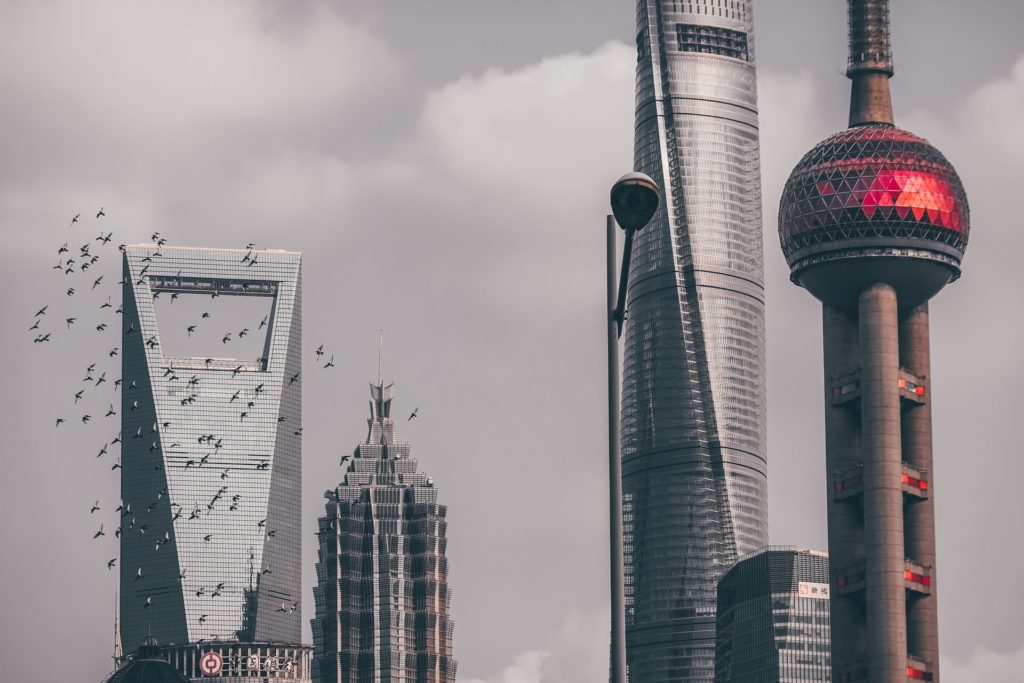Michaela Cullen
The Shanghai government has extended its city-wide lockdown as Covid-19 cases continue to surge.
The Shanghai Health Commission reported 425 locally transmitted cases and 8,581 asymptomatic cases on Monday morning, recording the largest Covid-19 surge in Shanghai since the first outbreak of the virus at the end of 2019.
Current lockdown measures
After initial resistance to tighter restrictions within the city, Shanghai began its two-stage lockdown last week with 26 million people being confined within their homes. Other Chinese cities have also faced restrictions. Eastern Pudong’s lockdown – which was scheduled to end last Friday – has been extended for at least two more weeks. In Western Puxi, residents have also been confined to a hard lockdown.
The city of Shanghai has been asked by its municipal Government to self-test for Covid-19, with further aims to reduce the rapid spread of cases.
We paused efforts for finding food to go downstairs for another round of testing
Today they are testing the entire city of 25+ million!
Instead of the home tests we had been using, it’s administered tests today
For us, group test of four people with mouth swabs pic.twitter.com/6R26fhe4it
— Jared T Nelson (@Jaredtnelson) April 4, 2022
Shanghai Municipal Health Commission Inspector, Wu Qianyu, told ABC “The main task is to completely eliminate risk points and to cut off the chain of transmission so that we can curb the spread of the epidemic as soon as possible.”
Despite the strict efforts of the government to decrease the spike in Covid-19 cases, with food shortages persisting, public transport grinding to a halt and the economy taking a downwards turn, citizens are protesting the lockdown.
“There will also be ripple effects elsewhere because of the interconnectedness between Shanghai and other regions of China.” – Economist, Xu Tianchen
Impact on the Shanghai economy
The future of China’s economy remains unstable. As the lockdown period extends, the financial and manufacturing industries continue to be negatively impacted, while the Shanghai shipping port experiences major disruptions.
Economist Intelligence Unit economist Xu Tianchen told the BBC “There will also be ripple effects elsewhere because of the interconnectedness between Shanghai and other regions of China, especially the manufacturing hub of the Yangtze River Delta.”
Whilst 24-hour operation still continues at the shipping port, the immense covid surge has resulted in delays and disruptions in operations due to restrictions on the number of workers permitted.
“My daughter is not yet four-months-old but, if she tests positive, then she’ll be quarantined by herself.” – Resident from Puxi
Children of Shanghai
Further media reports show Shanghai authorities separating positive tested children from their parents, leaving citizens questioning the necessity of the extent of the government’s efforts to abide by the strict ‘zero-covid’ plan. As part of this plan, anyone who tests positive, whether symptoms are severe or not, must isolate in a hospital or Covid-19 specific facility.
https://twitter.com/Jaredtnelson/status/1510294478355148803?s=20&t=XhazBXvyNwgYYgOcm-ywyQ
Shanghai citizens have expressed their concerns to different media platforms. A resident from Puxi expressed their concern to ABC stating “My daughter is not yet four-months-old but, if she tests positive, then she’ll be quarantined by herself.”
Reporting on this Covid-19 policy, The New York Times spoke to Ms, Yang, a 28-year old, who said “This is all inappropriate and unreasonable, whether they are 10 years old, 5 years old, or 3 years old or 1 year old. Otherwise, why do we have legal guardians in place?”
What will happen next?
China is determined to continue with the zero-covid policy. Whilst most of the world carries on with life as usual with Covid-19 lingering among the population, Shanghai is dedicated to eradicating the virus in its entirety.
Featured image courtesy of Kin Li on Unsplash. No changes were made to this image. Image license can be found here

